SUMMARY
This is AI generated summarization, which may have errors. For context, always refer to the full article.
![[Be The Good] Talking AI between ridge and reef](https://www.rappler.com/tachyon/2024/04/Talking-AI-between-ridge-and-reef.jpg)
A blue-sky April 3 morning found me, improbably, with my bare feet in the cool waters of Camotes Sea, under the shadow of imposing Mount Pangasugan.
I was a guest there of the Visayas State University whose beautiful campus encompasses these natural features. That day, we were to hold our first out-of-town community engagement event of 2024, with Rappler’s head of data Don Kevin Hapal and civic engagement specialist Waya Lao.
We were speakers at the Eastern Visayas Regional Tertiary Schools Press Conference, a major gathering of student journalists in the region.
As guests of our longtime partner Derek Alviola, a VSU faculty member and one of our first Rappler Ambassadors, we were asked to give a talk and workshop about artificial intelligence and how we use it for journalism and community building. Our audience: over 300 student journalists and their student publications advisers from different parts of Eastern Visayas. The theme: campus press in the time of AI.
Kevin, who also heads Rappler’s AI cluster, gave an overview of generative AI, and the threats and opportunities it brings to journalists and the information ecosystem. He explained Rappler’s AI guidelines, the first such guidelines for a Philippine newsroom. He explained nifty AI features on Rappler, like the sparkly button that any reader can tap to generate a bullet-point summary of an article. He showed TL;DR, a Rappler brand spinoff that uses AI to generate short videos from text.
Meanwhile, Waya and I showed the community-building features of the Rappler Communities app. The app and its chat rooms were a big part of our portion of the program. With VSU’s help, we asked all participants, days before, to download the app. We then used the app to crowdsource insights about AI from the audience. The authors of the three best insights were given prizes.
Because of this feature, anyone on the app can read all the contributions from the student journalists. You just have to enter the education chat room and scroll up to April 3 messages. At your fingertips are valuable thoughts – fears, hopes, and musings about AI from our country’s young people, the digital natives, who are most equipped to take advantage of generative AI but also stand to be the most affected by it.
“My takeaway is very simple. AI is like a double-edged sword,” wrote Kobe Spencer Juranes, editor-in-chief of The Light Publication from Southern Leyte State University Tomas Oppus campus, in the chat room.
“If we [do] not utilize it properly then it will lead us to our own downfall. We have the power to control what we do, so as journalists, it is our duty to become responsible in using AI tools,” he added.
In the open forum, one gap that journalists could fill surfaced from the discussions. How can Rappler and other professional newsrooms help student publications come up with effective AI guidelines?
In the workshop, we again used the app’s chat rooms to do what journalists do best: gather news. We asked the student journalists to tell us what they think are the underreported issues from their communities.
Because these are competitive student journalists, they wrote comprehensively and compellingly. Killings during barangay elections, suicide, teen pregnancy, dangerous roads, mining in Homonhon Island, were just some of the issues they raised.
“‘HELLISH ROADS,’ iyan kung tawagin ang kalsada sa buong lalawigan ng Samar,” wrote carolinee-05.
“Mapanganib at hindi ligtas ang dinadaanan ng mga Samarnon sa pang araw-araw na transportasyon dahil sa kawalan ng maayos na kalsada,” she said.
(Hellish roads. That’s what they call the roads in the province of Samar. Samarnons use dangerous roads everyday.)
You can read all of their contributions in the facts first ph chat room by backreading until the April 3 messages. We created art cards from the best of them, awarded prizes to the featured authors, and will be writing about their issues on Rappler.
Right after the event, I asked our reporting team back home to check the messages from student journalists for possible story leads, and to help ensure that these pressing issues are written about. The wonderful thing is that this info is laid out in neat fashion in our app, and because of the chat function, our journalists can easily reach the message sender for follow-up questions.
This, for me, is what it means to link journalists with communities using technology. Hopefully, this is the first step to sparking change and improving lives by telling compelling stories with communities.
What’s cooking?
Speaking of crowdsourcing efforts, it seems that President Ferdinand Marcos Jr. is trying to experiment with this by asking citizens to head to the “comments section” of a government platform during the so-called “town hall meeting on traffic concerns” on Wednesday, April 10.
He invited the public to participate in this meeting but, until now, it’s not clear how ordinary citizens can meaningfully participate and contribute to discussions.
Based on the program shown to Malacañang reporter Dwight de Leon, Cabinet officials will speak; the Metropolitan Manila Development Authority chief will provide a “synthesis of proposals” to address traffic; and there will be an open forum featuring San Juan Mayor Francis Zamora representing local chiefs, leaders from business and transport groups, Quezon City’s transportation management office, a barangay captain, and the CEO of a ride-hailing app.
We at Rappler want to contribute to this effort. We’re holding a live panel discussion alongside a livestream of the Marcos town hall on Wednesday, April 10, at 8 am. Our guests will be representatives from AltMobilityPH, Move As One Coalition, and PARA Advocates for Inclusive Transport. These are groups who are not represented in the town hall – active transport advocates and commuters.
You can be part of the discussion. Just join the liveable cities chat room and send all your questions, insights, and suggestions there. We’ll read them out during the live panel. If we gather enough insights, we can compile all of them and send them to the Presidential Management Staff. Marcos invited the public to participate so we hope this will be welcome data for them. – Rappler.com
Be The Good is a newsletter that comes out every other Wednesday. We deliver updates straight to your inbox on how journalism and communities can work together for impact.
To subscribe, follow the #FactsFirstPH movement or visit rappler.com/profile and click the Newsletters tab. Create a Rappler account that helps you manage your newsletter subscriptions.
Add a comment
How does this make you feel?


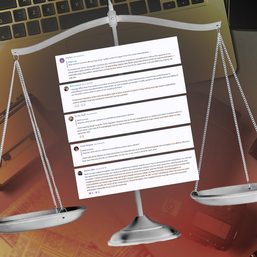
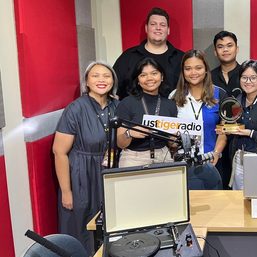
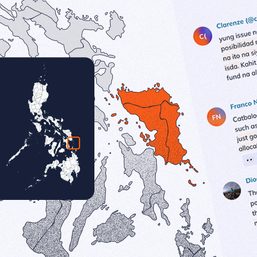
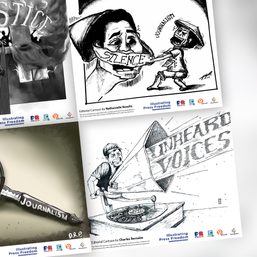
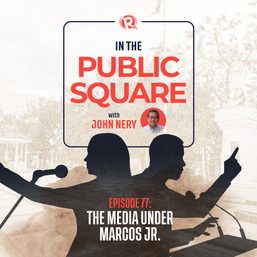
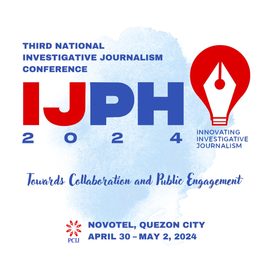
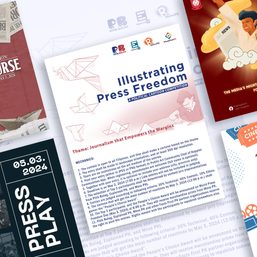

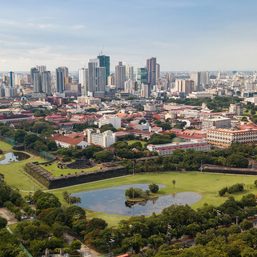
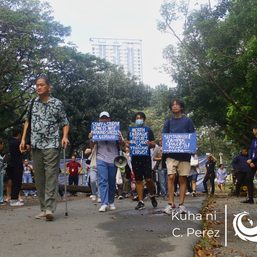
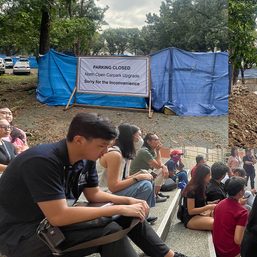
There are no comments yet. Add your comment to start the conversation.